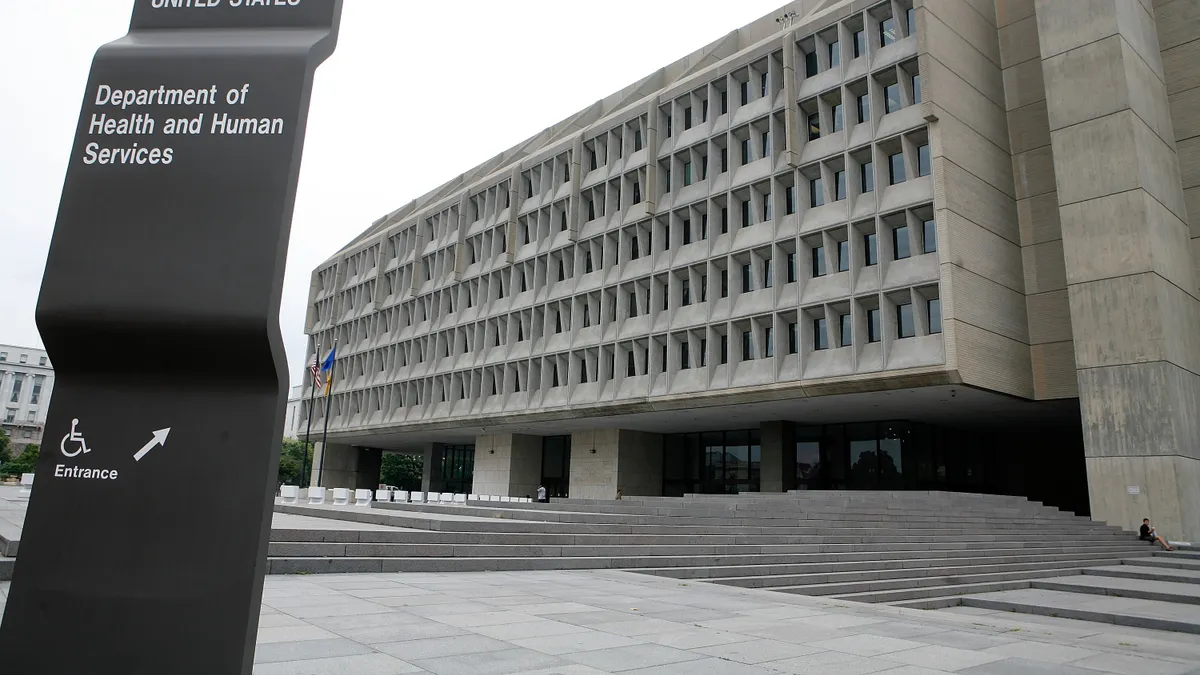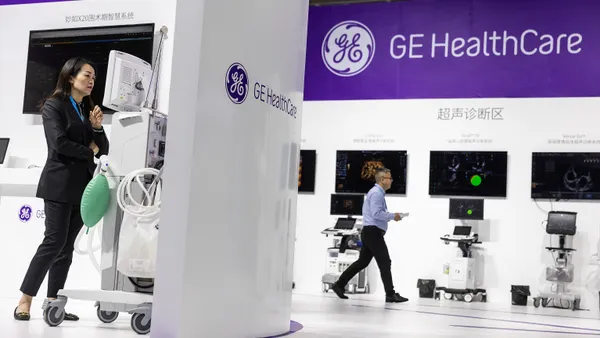Dive Brief:
-
Physicians writing in The New England Journal of Medicine have called for CMS to rescind its reimbursement rule for breakthrough devices on the grounds it will drive use of products that lack “rigorous evidence supporting safety and effectiveness.”
-
The final rule, which is yet to take effect, will grant developers of devices with breakthrough status Medicare reimbursement on the day of market approval. The physicians hailing from Massachusetts Eye and Ear Infirmary, Yale School of Medicine and the University of California, San Francisco warned the plan will “undermine Medicare’s authority.”
-
Rescinding the final rule would eliminate a proposed change Wall Street analysts had called a major tailwind for companies including Abbott Laboratories, Johnson & Johnson and Medtronic.
Dive Insight:
The Medicare Coverage of Innovative Technology initiative has divided physicians and industry since CMS finalized the plan. AdvaMed CEO Scott Whitaker said allowing CMS to quickly grant access to devices recognized by FDA as safe and effective is “good government” and “good common sense.”
Critics like Sloan Kettering's Peter Bach contend the rule is a risk that could add costs, without evidence the treatments even work for seniors.
Peers of Bach fleshed out the case against the CMS plan in a NEJM piece.
“By circumventing existing, evidence-based processes for Medicare-coverage decisions, the rule could fuel the use of devices by beneficiaries without rigorous evidence supporting safety and effectiveness. Although the new pathway’s anticipated benefits for Medicare beneficiaries are uncertain at best, the investment involved would probably be substantial,” the physicians wrote.
The case against the rule centers on whether approved devices with breakthrough status will always advance the care of Medicare beneficiaries. In an earlier analysis of the FDA's breakthrough program, the physicians found high-risk devices “were approved primarily on the basis of studies that used short-term, surrogate end points for effectiveness, which may not translate into clinical benefits.”
FDA mandates postmarketing studies to fill in gaps in the premarket evidence on breakthrough devices. However, the CMS rule would enable companies to access Medicare beneficiaries before the completion of postmarketing studies.
The physicians contrast the uncertain benefits of the program to the certain costs. CMS foresees spending more than $2 billion on 14 MCIT-eligible devices in 2024. The physicians think that forecast “grossly underestimates the number of devices that would be MCIT-eligible,” pointing to the fact that more than 400 devices now have breakthrough status.
In light of the perceived shortcomings of MCIT, the physicians want CMS to rescind the program. President Joe Biden created a window of opportunity to rescind the rule by freezing the adoption of new and pending rules formulated under the Trump administration.
The rule had been scheduled to take effect March 15, before the Biden administration's policy was announced.
Rather than go down the current path, the physicians want FDA to raise the evidence bar for breakthrough devices and want CMS to limit add-on payments to products that substantially improve over existing options. The physicians think the changes could free up resources to support the expansion of the CMS-FDA parallel review program.











